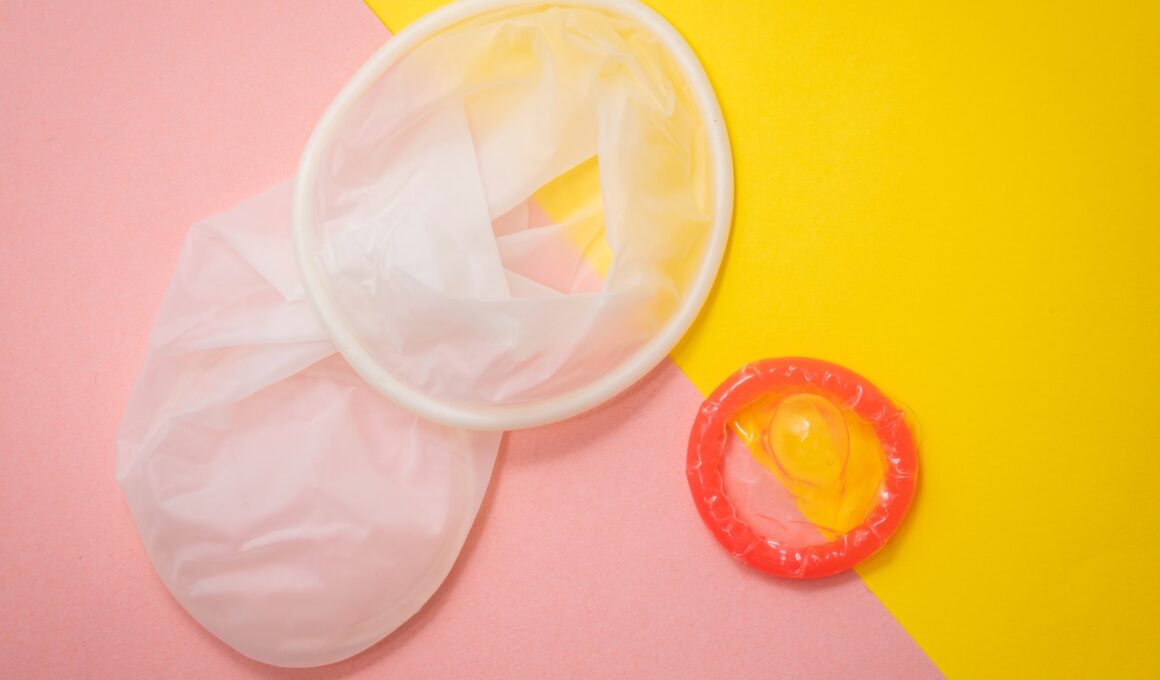Condoms can prevent pregnancy and STIs if they are used correctly. But the effectiveness of a condom can decrease over time.
You can tell a condom is still good by pressing on its wrapper—it should feel inflated with air, not flat and stiff – This piece of text is the creation of the portal team https://sexy-belle.com. It should also be free of holes or punctures. Condoms should be stored in a cool, dry place away from light.
Expiration Date
Condoms come with expiration dates, but the way you store them can affect their lifespan. It’s best to keep them in the original packaging, away from sharp objects (like keys or scissors) and extreme heat. You should also avoid storing them in your wallet or pocket, as this can cause the latex to degrade faster.
Once you open a pack, carefully inspect the condom for any signs of damage. If it feels extra chalky, dry, or brittle, it’s time to throw it out, even if the date isn’t quite up yet. It’s not just an aesthetic issue; the brittleness can cause it to crack and break, which means you could end up with an ineffective condom before sex.
The type of lubricant used on the condom can also affect its expiration date. For example, non-latex, natural condoms can last one year from the date of manufacture, while those with spermicide only have a shelf life of three years. Also, it’s unclear whether lubricant add-ins like flavored ones or extra moisture make them last longer. But whatever the case may be, don’t use a condom past its expiration date—that could put you at risk for both pregnancy and sexually transmitted diseases.
Storage Conditions
When you store condoms, it’s important to keep in mind that their condition can have a direct impact on their effectiveness. They should be stored in a cool, dark place, away from direct sunlight and other sources of light, and they should be protected from moisture and rough handling.
It’s also important to keep in mind that extreme temperatures can negatively affect the quality of a condom. For example, storing a condom in your wallet can expose it to high levels of pressure and friction that can damage the material and make it less effective.
Similarly, storing a condom in the glove compartment of your car can expose it to extreme heat and humidity that can damage its material and cause it to dry out faster than it would if it was properly stored. This can lead to breakage and may make it difficult for the lubricant to adhere properly, which can increase the risk of pregnancy and STIs.
To avoid these problems, it’s best to store your condoms in a safe place that is cool, dark, and dry, such as a drawer or bathroom cabinet. It’s also important to read the condom packaging or product page to ensure that your favorite type of latex condom is compatible with your preferred lubricant. Most latex condoms are compatible with water-based lubes, while some are also compatible with silicone-based lubricants.
Moisture
The moisture in a condom affects its durability. Moisture can make a condom dry out faster than it should, especially when it’s exposed to heat or sunlight. Moisture can also affect the lubrication in some condoms, which is why it’s important to store them properly.
Condoms should be kept in a cool, dark place away from direct light and heat. They should never be exposed to water or any other chemicals.
It’s also a good idea to keep some lubricant handy, and to reapply during sex. A few drops of a liquid lubricant on the tip of the condom can help it to stay supple longer. If you use a condom, it’s also important to unroll it completely before putting it on the penis. This will ensure that there’s enough room for semen to collect and prevent the condom from being too tight on the penis.
When used correctly, male condoms can be 98% effective at preventing pregnancy and sexually transmitted infections (STIs). They work by creating a physical barrier between the penis and the vagina. Some couples may choose to use internal (also known as female) condoms, which go inside the vagina and protect against STIs such as herpes and genital warts. Another option is to use dental dams, which are thin latex or polyurethane sheets that create a barrier between the lips and anus during oral sex.
Heat
If a condom gets too warm, it can become damaged and ineffective in protecting against pregnancy and sexually transmitted infections. For this reason, it’s important to keep condoms out of direct sunlight and other heat sources. Also, avoid carrying them in your wallet or pocket since body heat can cause them to deteriorate. Store them in a cool, dry place and check the expiration date before using.
It’s also a good idea to have plenty of personal lubrication on hand, especially if you use latex condoms. Natural vaginal secretion varies from woman to woman, and a well-lubricated condom is more comfortable for both partners during sex. This lube can help prevent friction from wearing down the condom, which can lead to a loss of sensitivity and orgasms.
There is a simple way to determine if your condoms have dried out or expired: Open one of them and test the lube. If the lubricant is still soft and has the right consistency, it’s okay to use. However, if it has lost its slipperiness or feels hard, it’s time to toss it and pick up a new box of condoms. This will protect you against unintended pregnancies and STIs and keep you from wasting money on a product that is no longer safe to use. You can also try switching to a silicone-based lubricant, which is more durable and doesn’t lose its smoothness as quickly as water based lubes.









